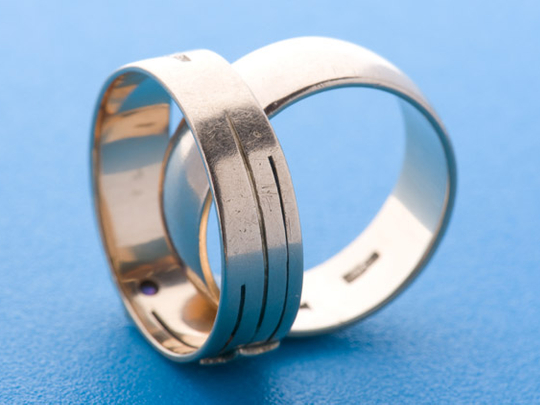
Recent data from Dubai showing a rise in the number of Emirati men marrying foreign women has stimulated debate about an issue that has long worried Emiratis concerned with the conservation of national identity, the cohesiveness of the traditional family, and the growing number of Emirati women forgoing marriage.
Many have been quick to blame these trends on the high dowries (mahr) and elaborate celebrations demanded by Emirati brides. Before rushing to judgment, howeverit is important to understand the reasons for traditions like the mahr and the role they play in shaping marriage decisions.
The decision to marry is always fraught with uncertainty. Importantly, no matter how honest a suitor is, he will always have more information about his commitment to a marriage and his ability to provide for a bride's economic security than the bride and her family will be able to ascertain. Such considerations are particularly important when divorce remains the unilateral right of the man — as it generally is under Islamic law.
In the local context, mahr and wedding celebration costs provide a means by which brides and their families can address these information asymmetries. For the bride and her family, the groom's ability and willingness to meet these costs provides a strong signal of his economic standing and commitment.
The relative size of the mahr, like all prices, is set by the market, influenced by the perceived benefits and risks to both parties. In the past, families were able to manage these risks in other ways. Consanguineous marriages allowed (and in some cases still allow) the bride's family to reduce the informational asymmetries inherent in a match by keeping that match within the family. Similarly, the intimacy of small communities meant that families were more aware of a groom's character and that families were better able to meditate in the case of marital problems.
Alas, times have changed: the Emirati population has grown and the tight social networks that once defined the population have loosened. In turn, the perceived risks in marriage have increased. The benefits of marriage have also changed. For both sexes, marriage still marks entry into adulthood and allows them the ability to start their own families.
Independence
However, for women, the perceived economic benefits of marriage are declining: As women secure more education and expand their presence in the workforce, they are becoming more economically independent. In this context, they have fewer incentives to marry, particularly if their proposed grooms do not want them to work.
In contrast, for men, marriage facilitates access to a host of economic benefits, including preferential access to land, housing and low-interest loans from the government (benefits that Emirati women accrue only indirectly through their husbands). It is uncertain exactly how much these factors influence the decisions of young men, but they are reflective of the economic incentives that men have to marry. In this context of such unbalanced incentives, Emirati women depend even more on mahr to determine the suitability of perspective grooms.
Over time, in a closed system, the tensions between men and women in regard to the economic expectations of marriage would resolve themselves as both parties adjust their expectations.
In the UAE, however, the situation has been complicated by a demographic imbalance. Simply put, Emirati men are increasingly reacting to high marriage costs by marrying foreign women. At the same time, Emirati women do not have the ability to marry foreign men. In doing so, they risk losing rights related to citizenship and the ability to pass on the rights of citizenship to their children, in addition to losing the support and respect of their families.
Government officials are working to develop policies that encourage marriage between Emiratis. Finding sustainable solutions will not be easy. Importantly, such solutions will not be found in efforts that circumvent the social purposes of mahr as an instrument allowing women to assess the suitability of grooms and to redress differences in the economic benefits and risks associated with marriage.
This can be seen in the inability of previous policies, such as the legal limits imposed on mahr and the provision of grants to Emirati men marrying Emirati women, to effect a major change in outcomes. While such policies are well intended, they undermine efforts by women to use mahr as a screening mechanism for suitable grooms. They are thus largely ignored by brides or, when they are accepted, may be leaving brides with a less effective way to determine the economic suitability of grooms than do payments made by grooms that are accrued through hard work, savings and familial wealth.
Balance in choices
Instead, officials should look for solutions grounded in an understanding of the social and economic factors that play a role in determining mahr and other marriage costs. In essence, effective solutions will be rooted in securing more balance in the choices and opportunities that men and women have when deciding on marriage. Such balance may be found in a system that places more restrictions on the choices that men have by restricting marriage to foreign women or the economic benefits they attain through marriage to foreign women.
Officials will probably find more success in expanding the opportunities available to women, such as providing land and financial allocations to women and men equitably, as is now being considered in Oman to address the same problem.
In the long run, however, empowering Emirati women to marry may mean easing restrictions on their ability to marry foreigners and provide citizenship to their children.
This, in itself, poses tremendous challenges to the traditional Emirati family and national identity, but it may be the cost of securing healthy marriages for the emerging generation of Emirati youth.
Paul Dyer is a Fellow at the Dubai School of Government.










